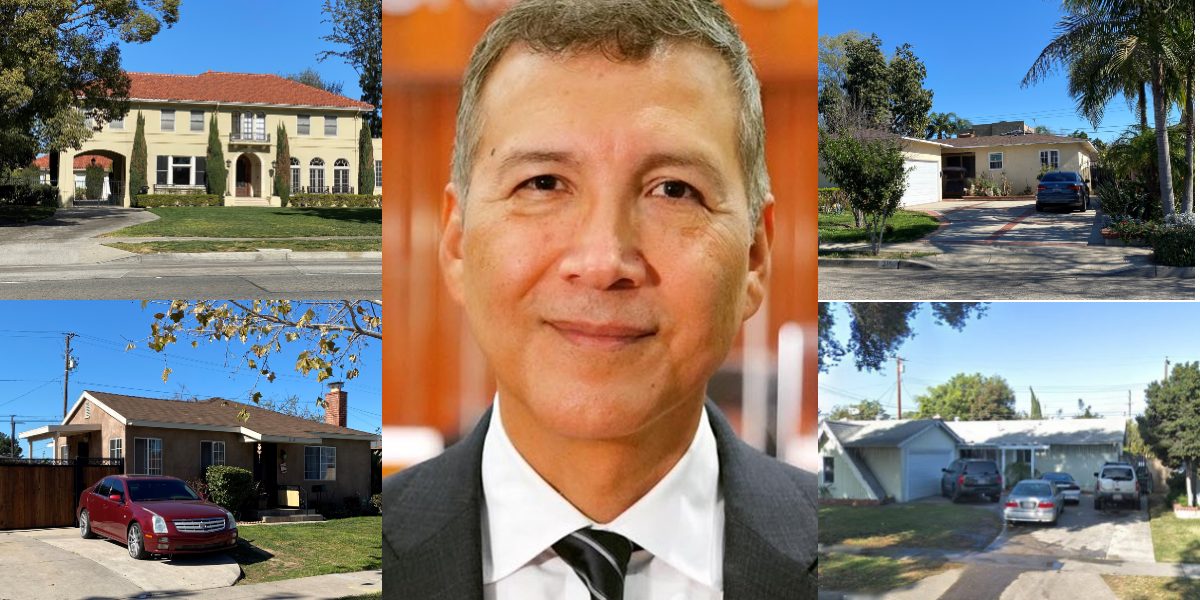Opponents of the city’s strict rent control ordinance say Santa Ana Mayor Vince Sarmiento concealed a financial conflict of interest while engaged in drafting the law, and maintain he should have recused himself not only from crafting the ordinance, but from voting on it.
Sarmiento, an attorney by profession, also owns extensive property holdings in Santa Ana, including three rental homes that generate between $30,000 and $300,000 in rental income for him annually.
This fact was generally unknown to the public last year when Sarmiento appointed himself to the ad hoc committee that met in secret last year to draft Santa Ana’s rent control ordinance. The measure, arguably the most draconian in the state, was ultimately adopted by a divided city council on a 4-3 vote.
As the ad hoc committee leader – along with Councilmembers Jesse Lopez and Thai Phan, Sarmiento had significant input and sway in deciding which types of rental properties would be subject to the rent control ordinance and which would be exempt.
When the draft ordinance was presented to the city council, the type of residential rental properties owned by Sarmiento was exempted, while subjecting small landlords to the onerous rent control law.
To critics, this is an example of a politician leveraging his power and influence to protect his financial interests while subjecting ordinary mom-and-pop property owners to the full brunt of a law that significantly degrades the value of their investment.
In addition to concealing his financial interest in rental properties, Sarmiento also violated the Brown Act by communicating with too many of his council colleagues about the rent control ordinance before it was discussed from the council dais – forcing the council to re-hear the entire ordinance to comply with the law.
Who Is Exempt From Santa Ana Rent Control?
Santa Ana’s rent control ordinance applies to rental properties built on or before February 1, 1995. It is arguably the most stringent in California, and its restrictions go much further than AB 1482, the statewide rent control legislation passed in 2020.
The ordinance:
- Restricts annual rent increases to just 3%, or 80% of CPI (the rate of inflation) – whichever results in the smaller rent increase.
- Creates an expansive definition of what constitutes “just cause” eviction, and prevents landlords from initiating such evictions until a problem tenant has lived in a rental unit for at least a year. Currently, “just cause” eviction protections only apply to the first 30 days of tenancy.
- Establish a city council-appointed rent control board with broad authority.
- Requires rental-property owners to provide tenant relocation assistance equal to three (3) months rent if the owner intends to move back into their rental.
- Allows tenants to add occupants without owner approval.
- Enables squatting without recourse for rental-housing providers.
- Imposes additional administrative and operational obligations on rental-housing providers.
Exempt from the rent control ordinance are:
- Mobilehome parks established after 1990
- Mobilehomes with long-term leases
- Single-family rental homes – of which Mayor Sarmiento owns at least three.
Stringent Rent Increase Limits Erode The Value Of Rental Housing
The 80% of CPI ceiling prevents landlords from fully covering the costs of maintenance and repair, even as the inflation rate increases those costs. Inflation is currently running at an annual rate of 7.5% – the highest in 40 years. Major costs drivers such as energy increased dramatically: 29.3% in 2021, according to the U.S. Bureau of Labor Statistics.
“Santa Ana’s rent control ordinance simply ignores the reality of rising costs for housing providers,” said Rick Julian, the CEO of Advanced Real Estate, a leading provider of rental housing in Santa Ana and the region.
“For starters, CPI is a very general measure that doesn’t truly reflect the particular cost drivers for housing providers,” said Julian. “Insurance is one of our largest expenses, and our insurance costs have risen 67% in the past year. Janitorial expenses have increased 42%.”
During the COVID-19 pandemic, there was a dramatic increase in the number of tenants staying home, which resulted in dramatically increased maintenance costs for apartment complexes, noted Julian.
“3%, or 80-percent of CPI, doesn’t allow housing providers to cover the rising cost of operating rental units,” said Julian. Not only does that undermine their ability to invest in maintenance and upkeep, but it lowers the value of the property, he pointed out.
“If the cost of operating an apartment complex is higher than rental income, the property is not lendable or sellable,” said Julian. “That is unfair to housing providers who have invested in these properties trying to maintain them at high standards.”
READ: Editorial: Santa Ana Mayor Sarmiento Isn’t Serious About Serious Crime
“Many rental properties are owned by individuals or families, or small groups of investors, who depend on them for supplemental retirement income, or to help fund a college education for their children, or to establish a legacy for their future generations,” said David Cordero, executive director of the Apartment Association of Orange County. “It’s a common pathway to achieving greater financial security and upward mobility over time.”
“This ordinance will devastate small rental-housing providers – people from all types of backgrounds and walks of life who have worked hard and made sacrifices in order to invest in a small apartment building or townhouse,” said Cordero, whose association represents more than 2,000 apartment owners and operators.
“They’ve invested in creating an additional income stream for themselves that can help pay to send their kids to college, or supplement their retirement,” continued Cordero. But the value of their investment isn’t solely in the form of monthly rent – but as an investment in their future, notes Cordero.
Ordinance Places No Restraint On Sarmiento’s Ability To Raise Rent On His Tenants
According to his 2021 financial disclosure forms, Mayor Sarmiento owns at least three single-family homes in Santa Ana that he rents out:
- A 3-bedroom home at 315 N. Linwood Avenue
- A 3-bedroom home at 812 N. Louise Street
- A 3-bedroom home at 2105 W. Hall Avenue
According to his financial disclosure, Sarmiento earns anywhere from $30,000 to $300,000 annually in rental income from these properties.
[Sarmiento also reports earning between $10,000 and $100,000 annually in rental income from the large historic home he owns at 1617 E. 4th Street in Santa Ana – which is also where his law practice is located. It is unclear if his lessee at this property is a residential or business tenant.]
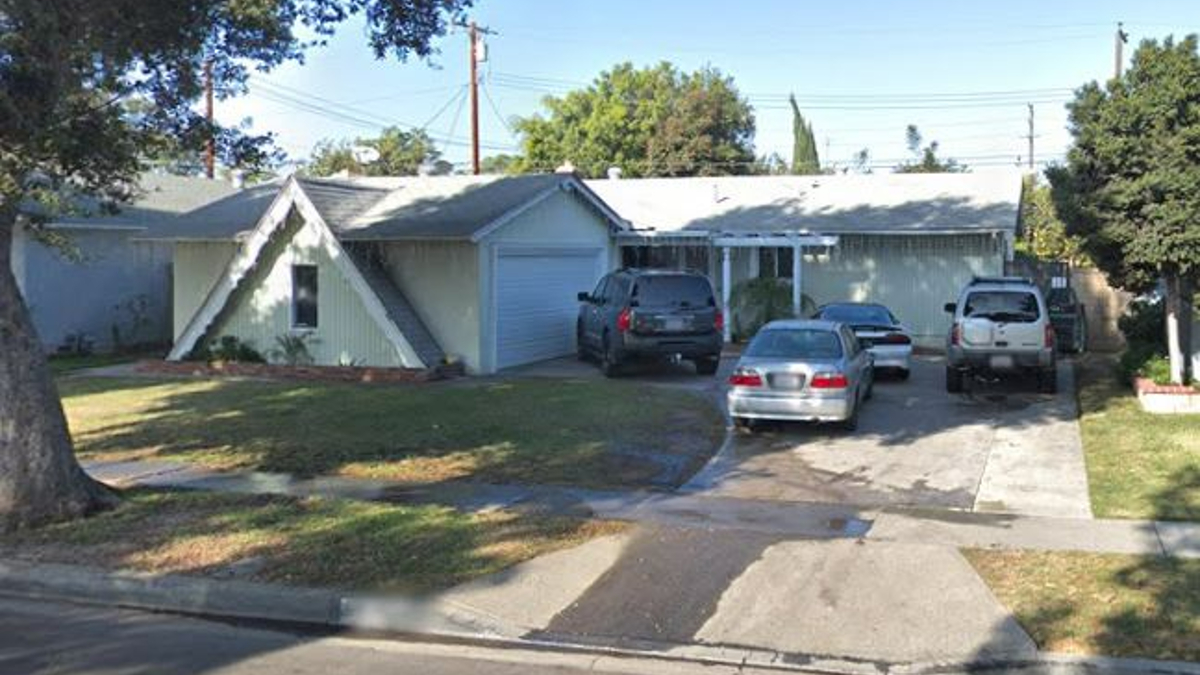
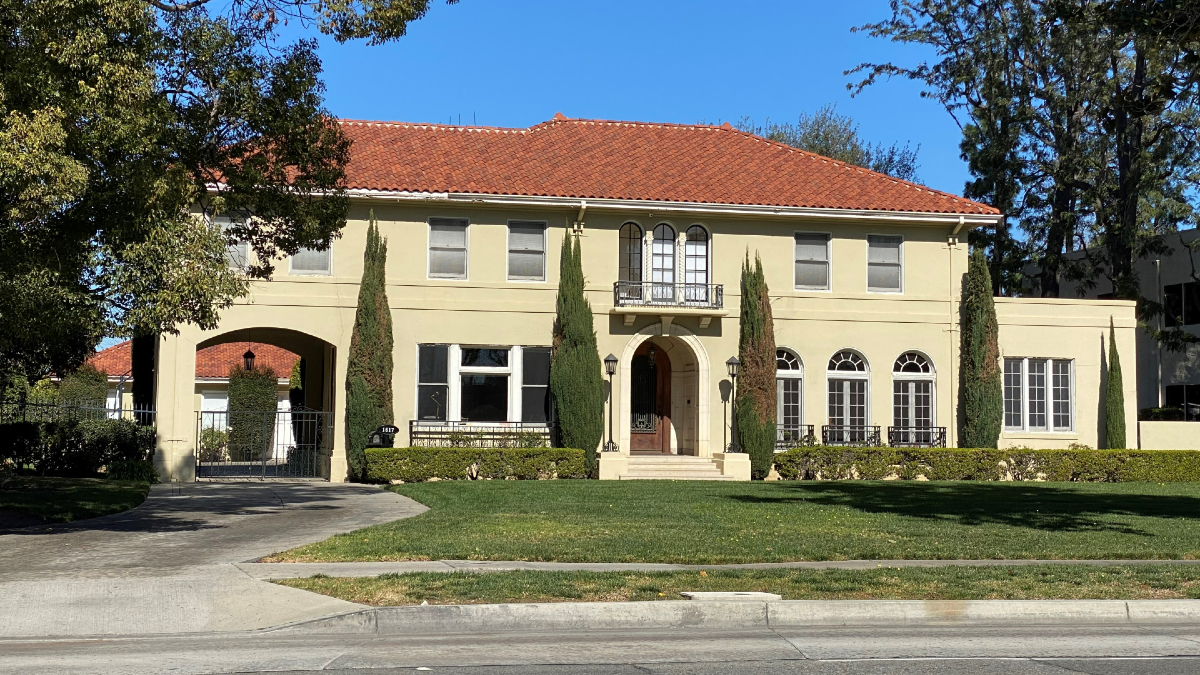
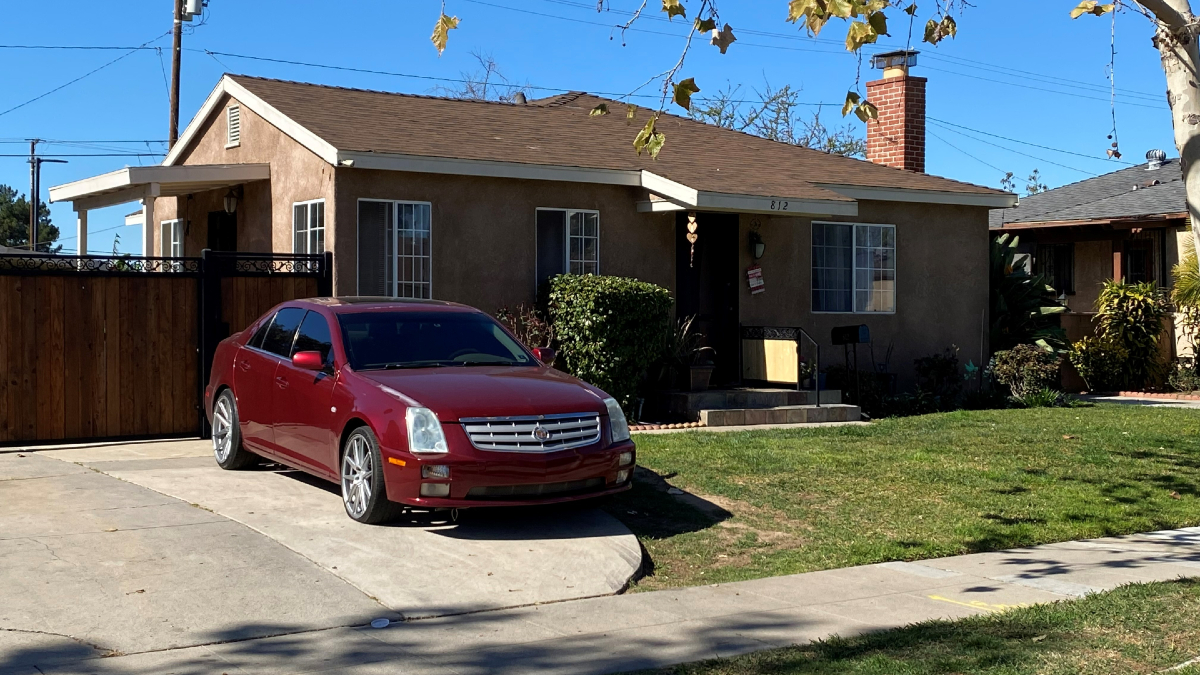
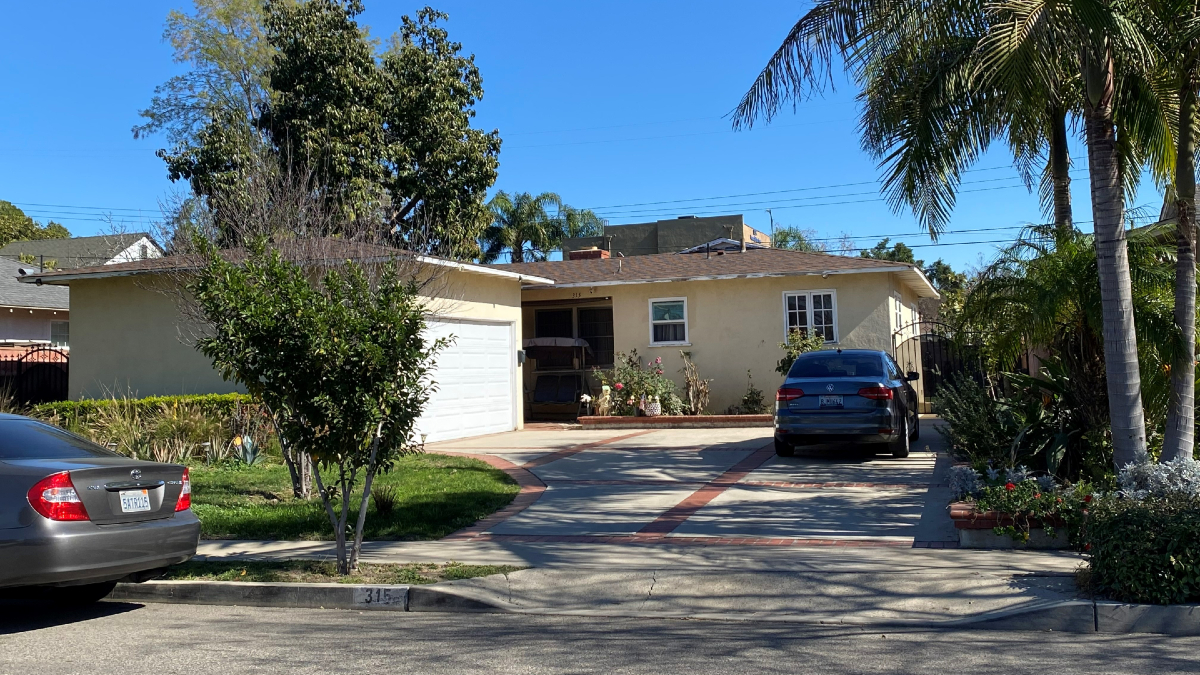
Under the strict rent control ordinance, Sarmiento helped draft, there are no limits on how much he can increase rent on his tenants. He is exempt from the law’s “just eviction” provision and other onerous requirements.
By contrast, a husband and wife who owned a simple duplex would be subject to the ordinance’s severe limits on rent increases – which can be devastating if they encounter unforeseen expenses, financial hardships – or if the costs of the duplex exceed their rental income. While Sarmiento’s rental properties continue to climb in value, the mom-and-pop duplex owners find the value of their investment significantly diminished.
READ: Santa Ana Mayor Vince Sarmiento Jumps Into 2nd District Supervisor Race
Sarmiento Declines To Comment On Potential Conflict Of Interest
The OC Independent contacted Mayor Sarmiento via e-mail to ask:
1) Why did you and other members of the ad hoc committee exempt single-family homes for rent?
2) How do you respond to the question of equity: the owner of several single-family rental homes is exempt, but the owner of a simple duplex is subject to draconian rent control limits?
3) As a landlord, was it appropriate for you to be involved in drafting an ordinance limiting how much rent landlords can charge?
4) During the ad hoc committee sessions and the city council deliberations, did you disclose that you own four residential rental properties?
We received a brief response via the city’s public information officer, saying that Mayor Sarmiento “respectfully declines to comment.”
At the time the rent control ordinance was being drafted and then considered by the Santa Anta City Council, opponents were unaware of Mayor Sarmiento’s potential conflict of interest. The most recent Form 700 he filed, in April 2021, redacted the addresses of his rental properties on the online version. The addresses and income information for his rental properties would only be available by visiting the Clerk of the Council to obtain a physical copy of Sarmiento’s disclosure.
When asked why only Sarmiento’s report had been redacted, the Clerk of the Council Daisy Gomez responded that her staff “misunderstood my direction when I asked them to redact only the residence address and signature field of the cover page.”
“They understand now that they are not supposed to redact the pages with schedules on them,” said Gomez. “My deepest apologies for the confusion. Thank you for letting us know.”
However, only Sarmiento, out of the seven council members, had such information redacted from his Form 700.
“Mayor Sarmiento had a duty to disclose his financial interest as a Santa Ana rental property owner. Instead, he concealed this on his economic interest report,” said the AAOC’s David Cordero.
“He also had a duty to recuse himself from voting on this matter because of his financial interest. He not only voted for it but he was also involved in the development of the law which exempts his rental properties,” said Cordero. “This is a glaring conflict of interest and a violation of the public’s trust.”

